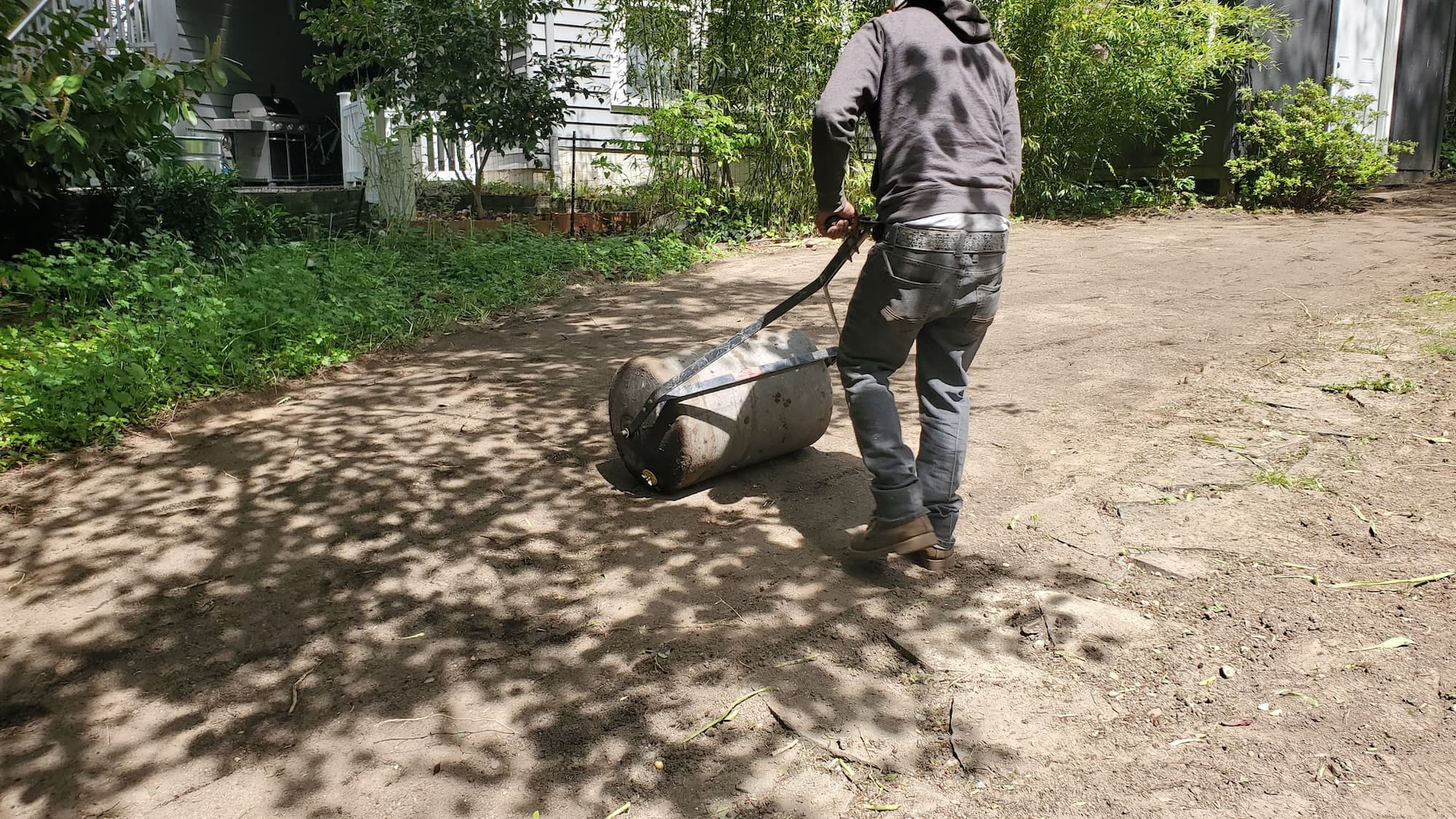West Seattle Foundation drainage gravel
Homeowner’s Issue
West Seattle homes sit in a rainy, maritime pocket of Seattle where soil and slope create repeat drainage problems. Heavy fall and winter rains, compacted urban soils, and pockets of glacial till or clay around the high bluff neighborhoods push water toward foundations and basements. Many houses near Alki, Lincoln Park, Admiral, or Fauntleroy were built before modern waterproofing and sit on shallow topsoil over dense fill—so water pools, gutters back up, and window wells fill during long rains.
Sun exposure is uneven: bluff-facing yards get more wind and sun, while tree-lined lots under Douglas-firs or maples stay cold and mossy. That combination—frequent moisture, shade, and root competition—encourages moss and invasive ivy rather than deep-rooted, drought-tolerant groundcovers. Drainage gravel at the foundation paired with proper grading and downspout routing fixes the recurring wet spots that rot trim, invite mold, and hurt curb appeal. HOAs in some West Seattle pockets prefer tidy beds and low-profile solutions; gravel is a durable, low-maintenance, and visually neutral option that meets those expectations without herbicides.
Our Quality Service
We install foundation drainage gravel with practical, sustainable methods—no herbicides. We start with a site assessment to map flow paths and locate downspouts, then trench to a planned depth, install geotextile fabric where needed, add drainage rock, and regrade for positive drainage away from the foundation. Typical small-to-medium jobs take 1 day; larger or slope work runs 1–3 days.
Tools and materials: mini-excavator or hand tools for tight access, 3/4” clean drainage rock, woven geotextile, reclaimed soil for light backfill, and compost-based topdress where plants remain. We favor recycled or locally sourced aggregate where available and use hand pulling, mulches, or manual removal for weeds. Benefits include reduced basement moisture, longer siding life, safer walkways, improved curb appeal, and lower maintenance demands.
What’s Included
- On-site assessment and drainage plan.
- Trenching alongside foundation to specified depth/width.
- Installation of drainage gravel and, if needed, geotextile fabric.
- Regrading to direct flow away from the house and tie into existing drains.
- Final clean-up and sweep of adjacent walkways.
Options / Upgrades: - Mulch + fabric edge for planted areas.
- Organic weed control (manual removal, solarization).
- Haul-away of spoil vs. green‑bin or compostable disposal.
- Downspout extenders or dry‑well connections (materials billed separately).
Before & After / Expectations
Work will be noisy and produce spoil—expect a visible trench during installation and light residual dust. Access to soil and driveway easements helps speed work; narrow side yards can lengthen the timeline. We handle debris with the option to use the City green bin for compostables or haul-away for mixed spoil.
Aftercare: keep downspouts clear and routed away from the foundation, check gravel lines twice a year (after heavy winters and late spring), and pull surface weeds early. In West Seattle’s shady pockets, monitor moss and ivy—remove by hand and add mulch or shade-tolerant plantings where desired. Avoid spraying chemicals; we use mechanical and cultural controls only.
FAQs
- Q: Will gravel stop all basement leaks?
A: Gravel improves drainage and reduces hydrostatic pressure but won’t fix internal leaks—combine with gutter maintenance and window-well checks for best results. - Q: How long does the gravel last?
A: Properly installed drainage rock can last decades; fabric may need replacement sooner if disturbed. - Q: Do you use herbicides to keep weeds out?
A: No. We use landscape fabric, manual removal, and organic mulches only. - Q: Can you work on sloped lots or bluffs?
A: Yes—slopes require different trenching, erosion control, and sometimes permit/HOA coordination; we’ll flag those in the estimate. - Q: How soon can you start?
A: Typical scheduling window is 1–3 weeks; rush slots open seasonally for urgent leaks.
Call to Action
If your West Seattle foundation is soggy or you’re tired of constant puddles, book an inspection and get a clear, sustainable plan. We offer quick scheduling, practical solutions, and honest estimates tailored to Alki, Admiral, Fauntleroy, and nearby neighborhoods. Email neatandtidyseattle@gmail.com for a free photo estimate or to set a site visit.










